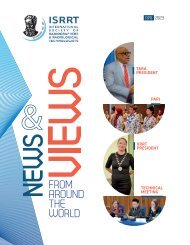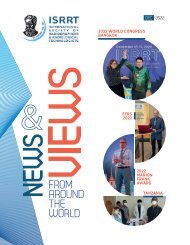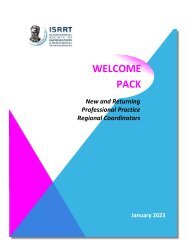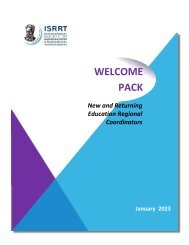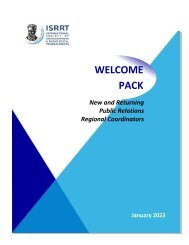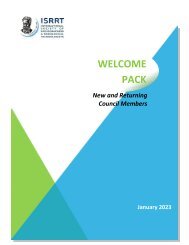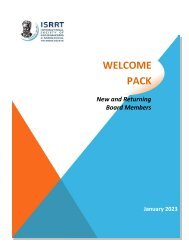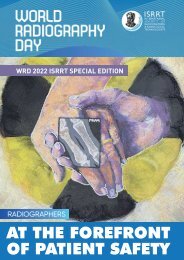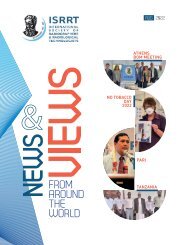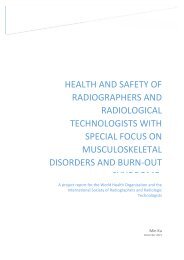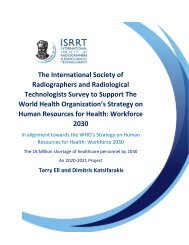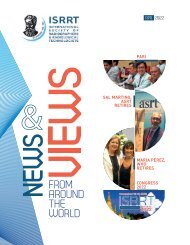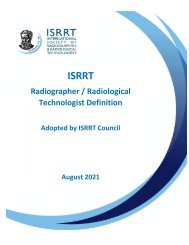ISRRT_COVID-19_book
Create successful ePaper yourself
Turn your PDF publications into a flip-book with our unique Google optimized e-Paper software.
The hospitals were under considerable pressure and it was understandable that we needed<br />
to support our clinical colleagues by pulling the first and second-year students from<br />
placement and delivering clinical learning through simulation sessions at university. This,<br />
however, significantly reduced their clinical learning experience and we have seen evidence<br />
of this impact during this current academic year. The feedback received from clinical<br />
supervisors indicated that the lack of in-person contact on placement learning negatively<br />
impacted students’ communication and patient care skills.<br />
The final year students were prioritised and the university held additional exam boards to<br />
enable this progression and graduation of this student cohort. This was imperative so that<br />
they could complete their clinical requirements and enter the workforce to help support a<br />
high-performing but thinly stretched fraternity.<br />
Student impact<br />
We previously mentioned that both students and academics experienced the impact that the<br />
<strong>COVID</strong>-<strong>19</strong> lockdown had on their personal and mental well-being. While we do not ignore the<br />
academics’ circumstances, it is prudent to specifically focus on the circumstances and wellbeing<br />
of the students. It is assumed that academics may already have strategies in place to<br />
deal with this matter and may have access to various support systems. As for the students,<br />
their abilities and enablers to continue and fully participate in their teaching, learning, and<br />
assessment activities given their often challenging home, family and socio-economic<br />
circumstances must be noted.<br />
Students experienced that they were divided between their family and their studies. Often,<br />
the South African students from traditional and rural families experience difficulties. As firstgeneration<br />
university students, there is a lack of role models in their society. Their family<br />
members do not understand the pressures associated with studying during the lockdown.<br />
Students were expected to contribute to family chores, many times under challenging<br />
circumstances. As such, this interfered with their teaching, learning, and assessment<br />
participation.<br />
To participate in their learning, some students had to either visit an internet café, often far<br />
away from their homes, or travel to a spot (a hill or mountain) searching for connectivity.<br />
Female students informed us that they were often scared of gender-based violence and felt<br />
<strong>19</strong>8




